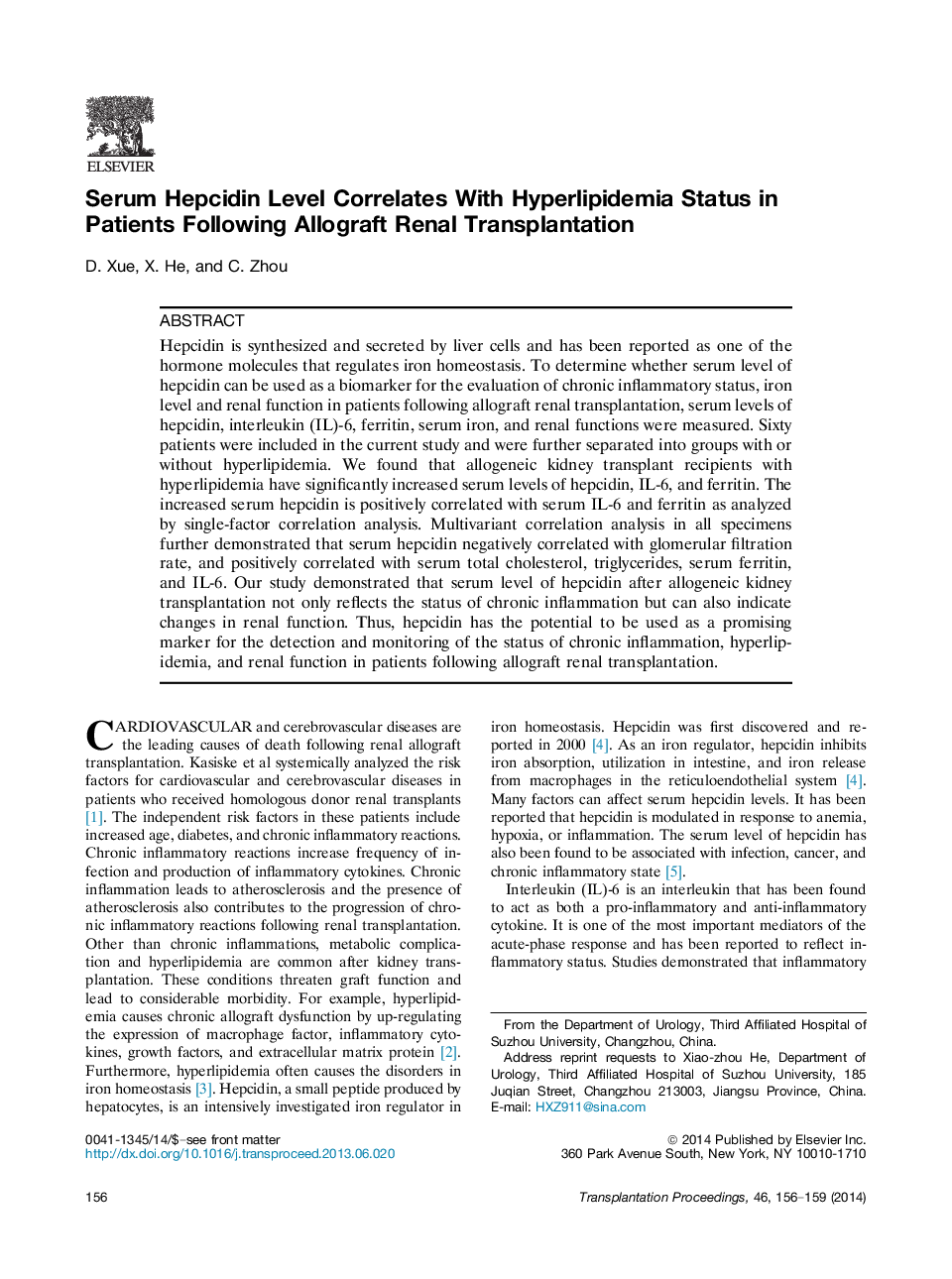| Article ID | Journal | Published Year | Pages | File Type |
|---|---|---|---|---|
| 4256759 | Transplantation Proceedings | 2014 | 4 Pages |
Hepcidin is synthesized and secreted by liver cells and has been reported as one of the hormone molecules that regulates iron homeostasis. To determine whether serum level of hepcidin can be used as a biomarker for the evaluation of chronic inflammatory status, iron level and renal function in patients following allograft renal transplantation, serum levels of hepcidin, interleukin (IL)-6, ferritin, serum iron, and renal functions were measured. Sixty patients were included in the current study and were further separated into groups with or without hyperlipidemia. We found that allogeneic kidney transplant recipients with hyperlipidemia have significantly increased serum levels of hepcidin, IL-6, and ferritin. The increased serum hepcidin is positively correlated with serum IL-6 and ferritin as analyzed by single-factor correlation analysis. Multivariant correlation analysis in all specimens further demonstrated that serum hepcidin negatively correlated with glomerular filtration rate, and positively correlated with serum total cholesterol, triglycerides, serum ferritin, and IL-6. Our study demonstrated that serum level of hepcidin after allogeneic kidney transplantation not only reflects the status of chronic inflammation but can also indicate changes in renal function. Thus, hepcidin has the potential to be used as a promising marker for the detection and monitoring of the status of chronic inflammation, hyperlipidemia, and renal function in patients following allograft renal transplantation.
